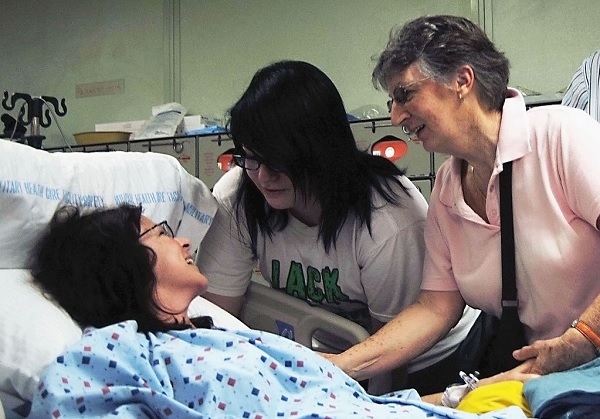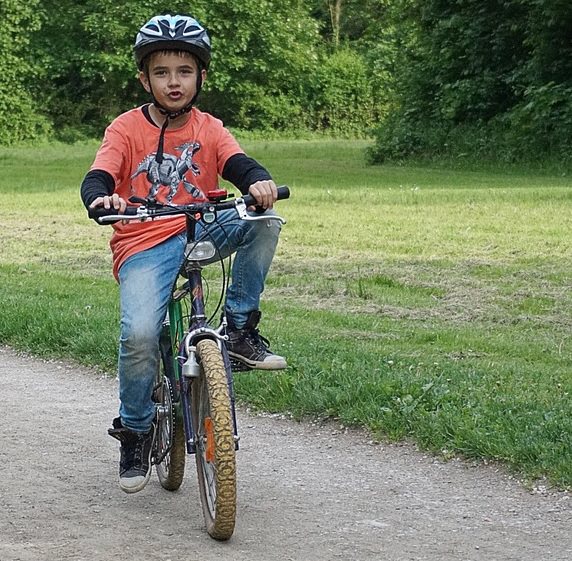The brain injury didn’t just happen to your loved one, it happened to you as well. Suddenly life is different, but there are proven coping methods that can help.

Research shows there is substantial impact on the entire immediate family, as well as relatives and close friends, following a traumatic brain injury. It is common for the family to also be traumatized by the news of the brain injury.
The initial shock following the injury, the hours of waiting for news in the ER or from a surgical team, or updates from ICU/CCU takes its toll on family members.
Often the family experiences terrifying fear if they are told by the physician that their family member may not make it and if he does, there will be substantial loss of function. In one split second, their world has been turned upside down, forever changed. Initially they will have very limited understanding of the meaning of this tragic news and how the journey from this point will drastically affect their lives.
The impact that brain injury has on the entire family system is so significant that, for the family to also recover, they must turn to others for support, guidance, education, and resources. Their emotional challenges are great: sadness, disappointment, anger, frustration, guilt, isolation, and grief.
Psychotherapy and support groups are two possible ways for families to connect with someone who can offer them the support they so desperately need. Through psychotherapy and support groups they are able to develop feelings of connection, as opposed to isolation, learn coping skills, and begin the process of emotional healing.
It’s important for family members, relatives and close friends to understand that they may have an increase in stressors and responsibilities. Coping skills and self-care are key factors in helping families stay mentally and physically healthy.
Some important coping strategies include the following:
- Getting adequate and consistent sleep
- Eating a balanced diet
- Getting regular exercise
- Getting respite care is essential for care givers
- Utilizing support systems
- Engaging in fun recreational and leisure activities
- Spirituality and prayer
- Practicing daily relaxation strategies (meditation, yoga, mindful breathing exercises)
- Maintaining physical health by wellness exams and physician appointments
- Considering counseling and medications because they can be very effective if experiencing emotional challenges such as depression, anxiety, anger, burn-out or excessive fatigue
- Keeping medical bills, healthcare information, paperwork related to rehabilitation, disability, and community resources well organized
- Obtaining information regarding the brain injury and how it has impacted the brain injured person
If the brain injured person is in a relationship or married, it is common for the couple to experience high levels of stress and even discord. Age, severity of the injury, time since onset, duration of the relationship, and financial status are all potential factors that can affect marital stability following a brain injury.
If the brain injured person is able, family and marital therapy with a licensed clinician who is knowledgeable about brain injury can be very helpful. Counseling can allow the couple to identify the healthy aspects of marriage, work through emotional adjustment issues, identify role changes, build on strengths within the relationship, learn effective ways to communicate post-injury, and work toward acceptance to allow for the quality of the relationship to improve.
 Children are also impacted by the brain injury and can experience emotional challenges such as stress, anxiety, and depression. Depending on their age, they may not be able to express their emotions, but they may show signs by acting out or having difficulties in school.
Children are also impacted by the brain injury and can experience emotional challenges such as stress, anxiety, and depression. Depending on their age, they may not be able to express their emotions, but they may show signs by acting out or having difficulties in school.
It is important for them to understand that it is not their fault that the injury happened and for them to receive empathy, support, and love.
Psychotherapists who have experience with both children and brain injury can be very helpful. They can also provide guidance to the parents on how to approach issues with their children in a loving way the children can understand.
Many individuals talk about how they grew stronger as a person as well as growing in their relationships with others through this experience. Some even desire to become a part of the brain injury community through advocacy to help others going through similar experiences.
If you, or your loved one, have sustained a brain injury, it is important to know that you are not alone. With adequate support, resources, and ongoing self-care, the family and the brain injured person can go on to have quality lives together with joy and contentment.
